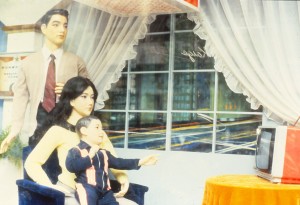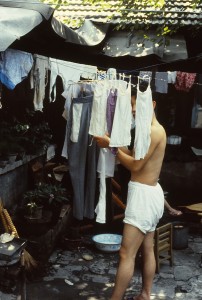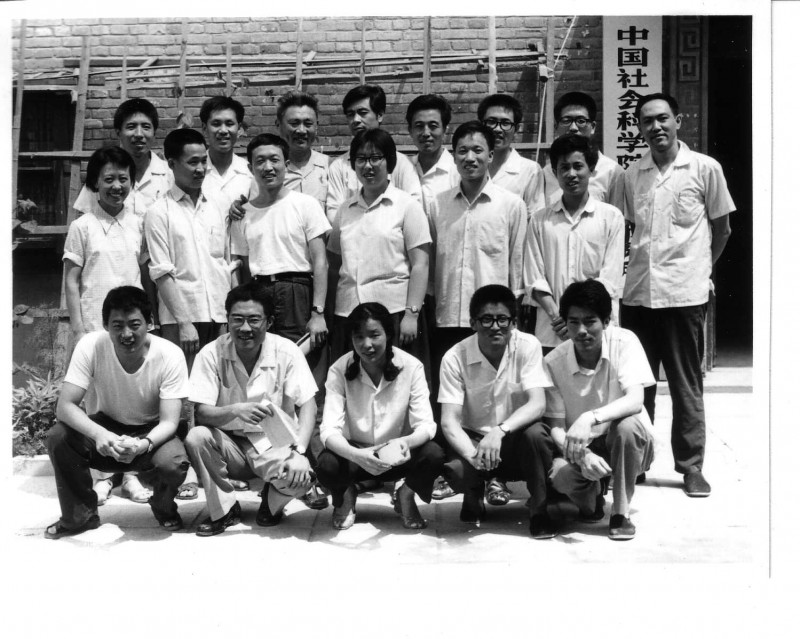
In 1981, when I was working at Radio Beijing in the People’s Republic of China, I had the opportunity to interview a group of graduate journalism students at the Peoples Daily Journalism School. (My friend, Judy Polumbaum, was their professor). I had just finished giving a talk in their class about American broadcast journalism; in return they agreed to be interviewed about social and sexual attitudes, love, romance and marriage. They were an unusually candid group of young adults. And our conversation ranged from attitudes about virginity, divorce and qualities of a good marriage partner. Compared to the rather sober and reticent social style of my colleagues at Central Broadcasting, these students were a breath of fresh air — telling jokes, interrupting and disagreeing with each other. The men often delivered traditional platitudes about pre-marital sex, expectations during marriage and divorce, while the women were much more forgiving and broad-minded.
Generational war, gender separation and one-child policy

They addressed the generational war currently taking place in Chinese cities, between young people who think they should have more freedom to “Play” — which means dating — and parents who were still suffering the effects of the Cultural Revolution when people could be persecuted for having affairs. Gender separation in work places — factories set up strictly for men — or work assignments in different cities — played havoc with finding a mate or keeping a marriage together. And they all bristled at the one-child policy although they understood the imperative. Most of them pointed to Confucius for China’s patriarchal attitudes toward women and puritanical ideas about sex and marriage. And they spoke about how different the minority peoples were regarding their social and sexual practices. That it was the dominant Han Chinese who were so puritanical.
Sex education non existent
The students revealed that birth control and sexual education is almost completely absent. An occasional book or pamphlet might recommend cold showers and exercise to inhibit sexual desire. Birth control pills are not available to unmarried students. After you marry, it’s the neighborhood committee that will come by and check on your periods and offer birth control methods.

Attitudes about divorce
Although after Liberation in China the 1950 marriage law made it easier for women to divorce, in the ensuing years divorce once again became difficult. A survey released during the year I was in Beijing indicated that most divorces were rooted in financial tensions or conflicts between the wife and the mother-in-law. In 1980 the Marriage Law was revised to make divorce easier again but still attitudes worked against a divorced woman in particular.

The students have such an appealing and intimate presence. Once again a product of the radio documentary form. The content is fascinating. I wonder how things are today. It would be really worthwhile to do a documentary comparing policies and attitudes from let’s say 1945 to today (going back earlier might not be very feasible).
How can I hear the full documentary?
Hi Michelle, thanks for visiting my archival site. I stalled on the large task of posting the full length of all my documentaries and features here simply because when I first constructed the site, it couldn’t handle the load. Now the technology allows us to do this. And since I have regular requests for some of these programs, I must now try to do so. In the case of this documentary, the relevant interview here about romance, love, marriage and attitudes to the new one child family were detailed in my memoir, Forbidden Fruit: 1980 Beijing. (VanDam 2016) available on Amazon.com (somehow I cannot insert the link here: but google Amazon Gail Pellett Forbidden Fruit) I hope this works!